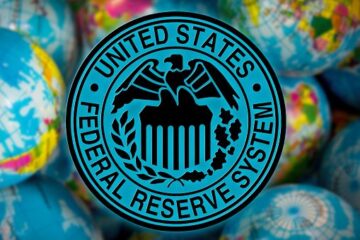If you haven’t been to a car dealership in person or stumbled upon an advertisement for a local dealership lately, you are missing out on a lot when it comes to the shiny new metal in the showrooms.
These days, new cars are stuffed with enhanced safety features and the latest technology and are powered by motors that do very well on regular gas. But while the thought of a new set of wheels might seem fulfilling, the actual sticker price of these new machines might detract you from their allure just as fast as it draws you in.
🚨Don’t Miss this amazing Black Friday Move! Get 60% off TheStreet Pro. Act now before it’s gone.😲
According to the latest data available from Kelley Blue Book and Cox Automotive, the average transaction price that buyers paid for their new cars in October 2024 is a whopping $48,623, about 1.7% higher than the levels recorded during the same period last year.
But at current prices, experts at S&P Global Mobility warn that potential political policies could hurt buyers’ ability to buy new cars.
The $66,000 BMW M2 on the production line at BMW’s San Luis Potosi plant in Mexico.
BMW
S&P warns of potential tariff risk to auto market
In a new report, analysts at S&P Global Mobility warn that the threat of President-elect Donald J. Trump’s import tariffs could result in adverse effects that could hurt buyer’s ability to buy new cars if implemented.
On the evening of Monday, November 25, Trump announced in a post on his social media platform Truth Social that he would levy new 25% tariffs on “ALL products coming into the United States,” citing cross-border issues such as illegal immigration and drug trafficking as justification for the trade penalties.
Although Trump would meet Mexico’s President Claudia Sheinbaum Pardo and Canadian Prime Minister Justin Trudeau in different capacities in the same week after the posts on Truth Social went live, S&P notes that if he sticks to his plans, it could mean bad news for both foreign and domestic automakers that sell in the United States.
The experts at S&P Global claim that affected automakers could see their profits slashed close to or above double digits.
Related: Your favorite American cars are about to get a lot more expensive
In their sample model, the analysts examined a scenario in which Trump placed a 25% tariff on auto imports from the EU and the United Kingdom and on Mexican and Canadian auto imports.
Experts at S&P Global claim that automakers could see their annual profits slashed by a shocking 17% due to potential tariffs that Trump threatened to place on goods bound for the States from these regions.
In its models, the analysts found that while BMW, Ford (F) , Mercedes-Benz, and the Hyundai Group were the least exposed to tariffs, the companies could still see their 2025 EBITDA dip up to 10%.
Additionally, they found that Volkswagen and Toyota (TM) could see between 10% to 20% of their 2025 EBITDA wiped out, while General Motors (GM) , Stellantis (STLA) , Volvo, and Jaguar Land Rover risk losing more than 20% of their EBITDA.
More Automotive:
Mazda’s budget-friendly EZ-6 EV starts under $20K — but will it leave China?These parents shun Uber for Waymo for a built-in safety featureDistressed luxury sportscar maker files Chapter 11 bankruptcy
A worker cleans the front of a Ford Mustang Mach-E GT electric car at the Ford booth of the International Motor Show (IAA) Germany
TOBIAS SCHWARZ/Getty Images
Foreign manufacturing affects different brands differently
In their report, S&P analysts Lukas Paul, Vittoria Ferraris, Nishit K Madlani, Jeremy Kim, and Yuta Misumi say the risks for the Detroit automakers are due to their Mexican manufacturing presence, which helps them build their best-sellers at a price that Americans can gawk at.
“This is due to lower labor costs, favorable trade agreements–especially the U.S.-Mexico-Canada Agreement (USMCA)–and the proximity to the U.S. market,” the analysts said. “Currently, GM produces eight models in Mexico (notably [Chevrolet] Silverado, [GMC] Sierra, [Chevrolet] Equinox, [GMC] Terrain, and Chevrolet Blazer), whereas Ford only produces three models in the country (Bronco, Maverick, and Mustang Mach E).”
On the other hand, S&P finds that German luxury brands like BMW and Mercedes are not as exposed to tariff risks as domestic brands, as their U.S. imports only account for “7-8% of their global sales.”
All of the aforementioned brands have plants in the U.S. S&P finds that Ford, GM, and Stellantis could theoretically transfer all of their foreign production to underutilized facilities in the U.S. to cover their bases. According to their findings, Stellantis factories have utilization rates below 50 percent, while GM and Ford have a surplus capacity of up to a million units at their stateside plants.
Related: Tariff plan could force Hyundai into a scary, dark corner
However, it is not the same story with European brands like VW, BMW, and Mercedes, who would find it harder to move production from Mexico to the States. Though the three German heavyweights have production facilities in the South, it would not be a quick or cheap solution to bear.
Worst of all, S&P predicts automakers affected by the tariffs will likely pass part, but not all, of the added cost onto customers. The experts find that the new policy will directly affect the number of cars affected automakers send down the assembly line as well as their sticker price.
“Ultimately, the ability to pass through the tariff impact depends on the price elasticity of demand,” S&P Global Mobility analysts said. “We expect OEMs will carefully manage pricing changes against the potential loss of volume. Partial pass-through through pricing would also benefit OEMs’ locally produced models if key market players in the U.S. used the protection from tariffs to strengthen pricing discipline while maintaining a tight supply.”
Related: Veteran fund manager sees world of pain coming for stocks


